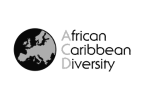Discussion Papers
Claudia Koehler
This book is a manifesto – partly in the form of a self-testimony, a critical social and political discussion and a resulting call for a revolutionary change in Africa.
Claudia Koehler
Dieses Buch ist ein Manifest – zum Einen als Selbstgeständnis und zum Anderen als kritische soziale und politische Diskussion und einem daraus resultierenden Aufruf zu einem revolutionären Wandel in Afrika.
Peter N.
Context specific research is required to foster a development process in Africa that meets existential challenges. In highlighting this requirement, this paper argues for the development of appropriate theories, methodologies, and conceptualization of phenomena founded on African ontologies and epistemologies.
Jaimie Bleck, Abdoulaye Dembele, and Sidiki Guindo
Mali experienced unprecedented crises in 2012: food insecurity from a poor harvest, a coup d’etat, and rebel insurgencies in the North of the country. This heightened instability caused hundreds of thousands of Malians to flee their homes. By June 2013, a month prior to Mali’s presidential election, 353,400, remained internally displaced and nearly 200,0000 refugees were living in Mauritania, Niger, and Burkina Faso.
Prof. Dr. Kocra L. A., Peter N. (MPhil), Evam K. G. (MPhil)
Kenya’s elections for choosing a President, Members of Parliament and Senators, County Governors and Members of 47 newly formed county assembly are set for 4 March 2013. The stakes are quite high not only because of the flawed 2007 polls and their subsequent violence but also because of the impending trials before the International Criminal Court (ICC) involving four Kenyans (some of whom are Presidential candidates) in their alleged role in the 2007-2008 post-election violence in Kenya.
Kocra L. A., Peter N., Kofi E. G., Verena P.
The necessity and effectiveness of development aid have been widely discussed in the past decades. Although some scholars approve of development aid as a necessity for economic growth in developing countries, others argue that steady economies could compete with western countries without development aid. Nevertheless, development aid efforts continue to be prominent in international policies.
Kocra L. A.
The purpose of this paper is to provide a short overview and summary of the theoretical discussion on the usefulness and potential contribution of policy research to policymaking in Africa. It also discusses briefly some of the major existing challenges that undermine policy research organizations capabilities in playing their role in the process of policy development in Africa.
Kocra L. A.
This discussion calls for a deepened and embedded regional integration process, in the context of southern Africa, which would essentially be premised on regional social policy. Its central thesis is that once the regional social policy is institutionalized at the supranational level, by regional governments, the region’s efforts towards regional integration would also be crystallized.
Our Partners & Supporters











